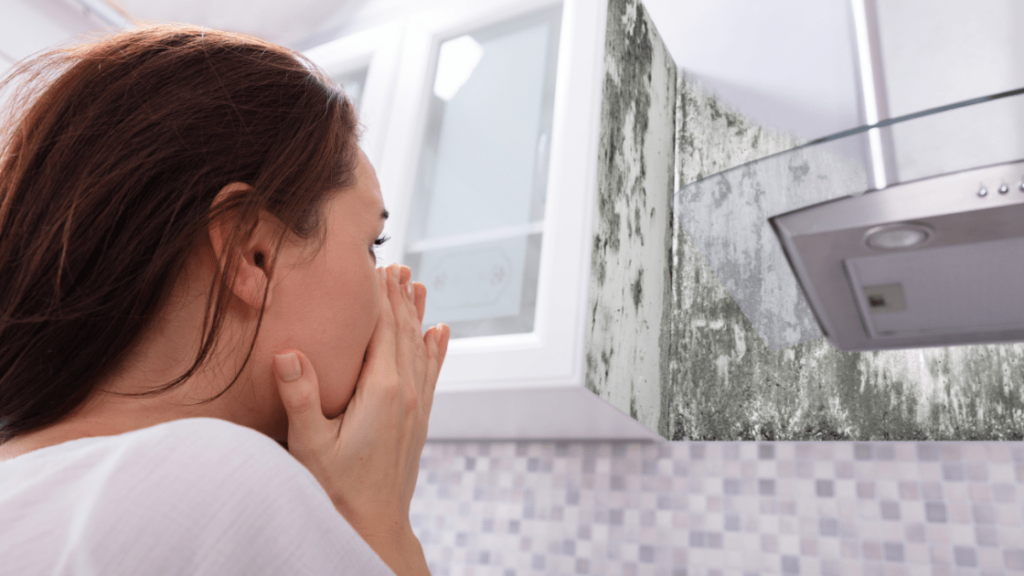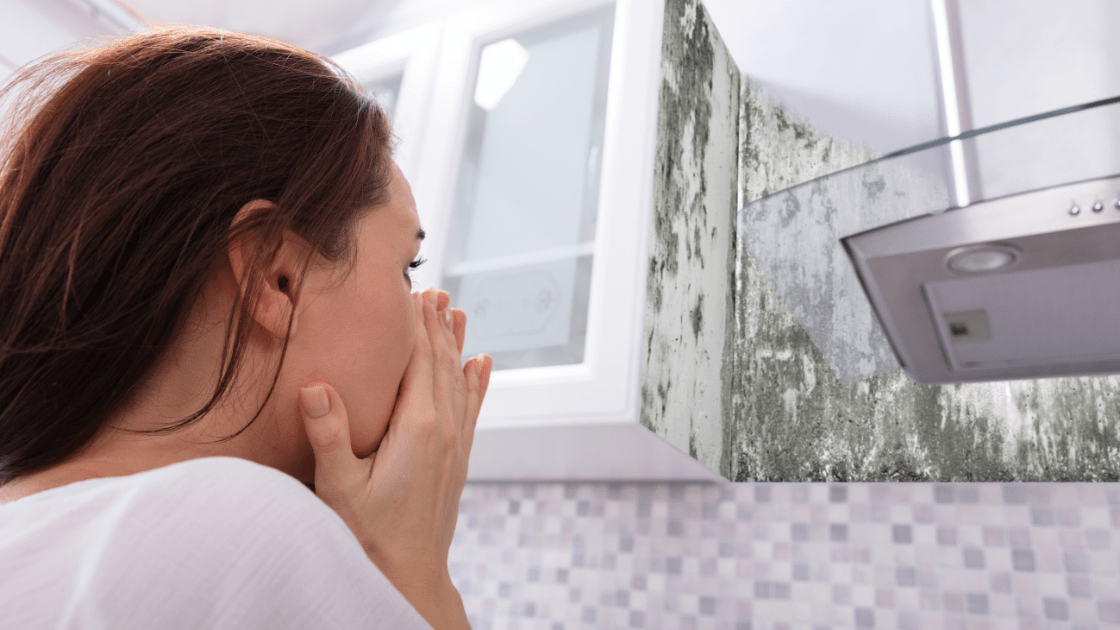
Selling a house in Rhode Island with mold issues may seem daunting, but it is certainly feasible. It is critical, however, to understand the implications and responsibilities that come with such a situation. This guide aims to provide you with an understanding of these impacts, legal obligations for disclosure in Rhode Island, and steps to take when selling a house with mold. It also offers advice on marketing strategies for houses with a history of mold and tips on presenting such a property in its best light while striking the right balance between fairness and attractiveness in pricing.
Can You Sell a House in Rhode Island with Mold Issues?
Yes, you can sell your house with mold, but it’s important to disclose the presence of mold to potential buyers. Laws regarding disclosure vary from state to state, so it’s advisable to consult with a real estate attorney or agent who is familiar with Rhode Island’s specific regulations.
What is Mold?
Mold is a type of fungus that thrives in damp and humid conditions. It can grow on various surfaces, including walls, ceilings, floors, and even furniture. Mold not only poses potential health risks to occupants but also indicates underlying moisture problems in the property. These issues can lead to significant damage if left untreated, making it crucial to address the mold problem before listing your house for sale. Moreover, potential buyers may be wary of purchasing a property with a history of mold, and if not properly addressed, it could affect the marketability and value of your home. Therefore, taking the necessary steps to remediate the mold issue and disclosing it transparently to prospective buyers is essential in ensuring a smooth and ethical transaction in Rhode Island.
Types of Mold Found in Houses
Mold, a common issue in many households, can potentially cause health problems and damage to your property. Understanding the different types of mold can assist you in identifying and addressing the problem more effectively. Below are a few common types of household molds:
1. Stachybotrys Chartarum (Also Known as “Black Mold”)
This is perhaps the most infamous type of mold due to its potential health risks. Often referred to as “toxic mold,” it thrives in damp areas and may produce toxins that can cause health issues.
- Identification: Stachybotrys chartarum is typically dark green or black, with a slimy texture.
- Common Locations: It often grows where humidity levels are high, such as bathrooms, basements, or leaky roofs.
2. Aspergillus
Aspergillus is a fairly prevalent household mold. Although it’s less harmful than black mold, some species can produce harmful toxins.
- Identification: Aspergillus appears in various colors depending on the species, including white, yellow, green or black. It tends to form thick layers on surfaces.
- Common Locations: This mold prefers environments with ample oxygen and sugar sources. That means you’ll likely find it on breads and fruits or in HVAC systems.
3. Penicillium
This type of mold is known for its role in creating penicillin but can also be a common indoor allergen.
- Identification: Penicillium usually appears as blue or green fuzzy spots.
- Common Locations: You’ll typically find this mold on materials damaged by water, like wallpaper, carpeting, insulation, or mattresses.
4. Cladosporium
Despite being an outdoor fungus, Cladosporium can make its way into homes and grow under both warm and cool conditions.
- Identification: Cladosporium has a uniquely suede-like texture and is usually olive-green or brown.
- Common Locations: It typically grows on fabrics, woods, and other porous, damp areas.
Identifying mold types can help in formulating an effective remediation plan. Remember, if you suspect a mold problem in your home, it’s always best to consult with a professional mold inspector for accurate identification and treatment.
Does mold decrease the value of a home?
Mold can indeed decrease the value of a home as it raises concerns about the property’s condition and potential health risks. Buyers may be hesitant to invest in a house with a history of mold, especially if it indicates underlying moisture issues that require costly repairs. Additionally, the disclosure of mold can give buyers leverage in negotiations, leading to potential price reductions. Therefore, addressing mold problems promptly and transparently is crucial to minimize any negative impact on the value of your home.
Steps to Take When Selling a House with Mold in Rhode Island
To sell a house with mold issues in Rhode Island, here are some crucial steps you should take:
- Get a Professional Mold Inspection: Hiring a certified mold inspector will help you understand the extent of the mold problem in your house.
- Address and Remediate the Mold Issue: Once you know the severity of the mold problem, take appropriate measures to remove or remediate it.
- Document the Remediation Process: Keep detailed records of all the steps taken to address the mold issue. This documentation will be useful when disclosing information to potential buyers.
- Consider Disclosing the Mold Problem: Depending on Rhode Island’s laws and regulations, you may need to disclose the mold problem to potential buyers.
- Make Necessary Repairs and Improvements: Apart from dealing with the mold problem, ensure that your house is in good condition by making any necessary repairs or improvements.
Sell Your House for Cash Fast!
Understanding the Impact of Mold on the Selling Process
When it comes to selling a house, appearances matter. But looks can be deceiving, especially when it comes to hidden issues like mold. So, how exactly does mold impact the selling process?
The Link Between Mold and Home Value
Mold infestations are more than an aesthetic issue; they can significantly devalue a property. A 2018 study by the National Association of Realtors showed that a home with mold could see its value decrease by up to 10%. Why such a significant drop in value? The answer lies in the cost of remediation.
Removing mold isn’t just about wiping down walls. It often involves extensive work, including replacing drywall, carpets, and even structural elements of the home. Depending on the severity of the infestation and the size of the property, remediation costs can range from $500 to $30,000 according to HomeAdvisor.
Beyond financial considerations, there’s also the issue of perception. Potential buyers tend to view homes with mold negatively, associating them with neglect or poor maintenance. This perception alone can deter many potential buyers, further reducing competition and driving down your home’s market value.
Health Risks Posed by Mold Growth
Mold isn’t just an eyesore; it’s a health hazard. It releases spores that can cause allergic reactions or respiratory problems when inhaled. Some types of mold produce toxins that can lead to serious health issues such as neurological damage or immune system suppression.
For sensitive individuals—like those with allergies or asthma—exposure to mold can worsen their conditions. Even healthy individuals may experience symptoms like coughing, wheezing, skin irritation, and sinus congestion due to mold exposure.
Given these risks, many potential buyers will be understandably wary of purchasing a home with a known mold problem. Consequently, addressing mold issues is not just about preserving your home’s value—it’s also a matter of health and safety.
Legal Responsibilities for Disclosing Mold in Rhode Island
In Rhode Island, sellers are legally obligated to disclose any known material defects that could affect the property’s value—this includes mold. A failure to disclose could lead to legal repercussions, including being sued by the buyer for misrepresentation or fraud.
Rhode Island law defines a material defect as a problem with the property that would have:
- A significant adverse impact on the value of the real estate
- Significantly impair the health or safety of future occupants
- Significantly shorten or adversely affect the expected normal life of the premises
Given that mold can both devalue a property and pose health risks, it clearly falls under this definition. Therefore, if you’re aware of a mold issue in your home, disclosure isn’t just recommended—it’s required.
From decreased home value to potential health risks and legal responsibilities, it’s clear that mold can greatly impact the selling process. It is essential to address these issues effectively before listing your home on the market.
Steps to Take When Selling a House with Mold in Rhode Island
If you’re facing the challenge of selling a house with mold, it’s essential to have an action plan. Mold is not just an aesthetic problem; it can impact the structural integrity of your home and potentially your health. Therefore, understanding the extent of the issue and how to tackle it is critical.
Step 1: Get a Professional Mold Inspection
One of the first steps when dealing with mold in your home is to hire a professional mold inspector. They will accurately assess the mold situation in your property, including hidden areas prone to moisture build-up like crawlspaces, attics, or behind walls.
Step 2: Choose the Right Mold Testing Method
Depending on your situation, you may need either air sampling (testing for airborne mold spores) or surface swabbing (sampling visible mold growth). A professional inspector can guide you on which testing method is most suitable for your case.
Step 3: Understand the Costs Involved
The cost of a mold inspection varies depending on factors like the size of your property and complexity of the assessment. However, consider this as an investment towards ensuring a smooth selling process for your Rhode Island home.
Step 4: Decide on DIY or Professional Mold Removal
For minor mold issues, DIY removal may seem feasible. However, it’s important to understand the risks involved and when it’s best to hire a professional remediation company.
- Pros of DIY Removal:
- Cost savings
- Immediate action
- Cons of DIY Removal:
- Potential spread of mold
- Exposure to health risks
Step 5: Consider Hiring a Professional Mold Remediation Company
For more substantial mold problems, hiring a professional mold remediation company is the safest and most effective option. They have the expertise and equipment needed to effectively remove mold, prevent its recurrence, and restore your home to a safe state.
Step 6: Factor in the Cost of Mold Remediation
While the cost of mold remediation can be significant, this is influenced by the extent of the mold issue, size of the affected area, and required repairs or replacements. Despite these costs, professional remediation is an investment towards securing a successful sale for your home in Rhode Island.
With these steps, you can address the mold issue in your house and move closer to selling it. But what comes next? How do you market a house that has had mold issues? The next section will explore strategies for selling such properties.

Marketing and Selling Strategies for a House with a History of Mold
When a property has been affected by mold, it’s critical to approach the sale with transparency and tact. Disclosing mold issues to potential buyers need not be a deal-breaker if handled correctly. Here are actionable strategies for marketing such a property effectively.
Disclosing Mold Issues: Honesty is the Best Policy
Being upfront about past mold problems can build trust with potential buyers. It’s advisable to:
- Provide comprehensive documentation of any remediation work done, including receipts, warranties, and certificates from the professionals who carried out the work.
- Prepare a detailed report from the mold inspection to demonstrate due diligence.
- Offer an explanation of the steps taken to prevent future mold growth, thus reassuring buyers.
This level of transparency can mitigate concerns and foster a sense of goodwill during negotiations.
Making a Good Impression: Presenting a Mold-Affected House in its Best Light
Even with a history of mold, every house has unique attributes that can captivate the right buyer. Focus on:
- Highlighting other positive aspects of the property, such as recent upgrades, location benefits, or architectural features.
- Considering professional staging to enhance the home’s appeal and distract from less favorable histories.
- Conducting air quality tests post-remediation to provide evidence of a healthy living environment.
By emphasizing these strengths, you redirect attention to what makes the home valuable and desirable.
Pricing it Right: Finding the Balance Between Fairness and Attractiveness
Pricing considerations are vital when selling a home with disclosed issues. Establishing an appropriate price requires:
- Evaluating comparable homes in your area that were sold without mold issues.
- Adjusting your expectations based on any residual effects of the mold issue on your home’s desirability.
- Being prepared for negotiations, as buyers might seek concessions given the property’s history.
Appropriate pricing reflects both the market reality and the value offered by your home’s unique attributes.
In Conclusion
When you’re faced with the challenge of selling a house with mold in Rhode Island, it’s crucial to take action immediately. Delaying remediation can exacerbate the problem and further decrease your chances of a successful sale. By following the steps outlined above, you can navigate this situation effectively and position your property in the best possible light. Remember, transparency, presentation, and pricing will be key factors in attracting the right buyer and achieving a favorable outcome.
If you are considering selling your Rhode Island house fast with mold issues, consider reaching out to professional home buying companies. They specialize in buying homes as-is, including those with mold problems.
Selling a house with mold can be daunting, but with the right approach and guidance, it’s possible to find a solution that works for you.


